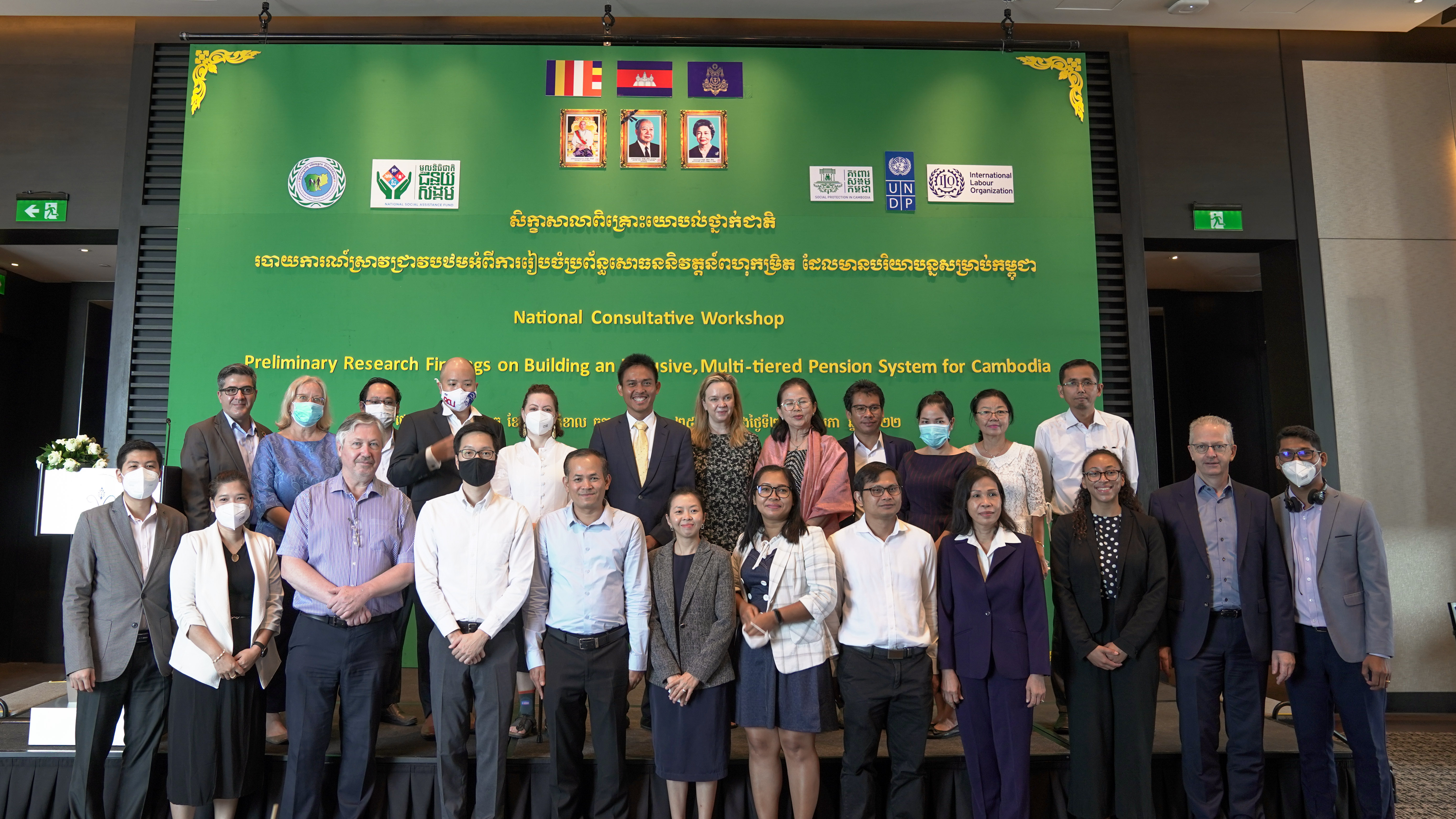Statement by Mrs. Alissar Chaker, UNDP Resident Representative
High-Level Consultation Workshop on Designing a Multi-tiered Pension System for Cambodia
May 26, 2022
Excellency Samheng Boros, Secretary of State, Ministry of Social Affairs, Veterans and Youth Rehabilitation (MoSVY)
Excellencies, Ladies and Gentlemen
A very good morning to you all.
I truly appreciate the opportunity of meeting you today in person and to participate in the discussion on feasible options for designing a multi-tiered, inclusive pension system, Leaving No One Behind. The options to be discussed are based on the study conducted jointly by the Ministry of Social Affairs, Veteran and Youth Rehabilitation, UNDP and ILO. I take this opportunity to thank all the partners and experts who provided insights and peer review to this study.
Cambodia is a young country, but its population structure is changing over time. In 2019, 8.9 per cent of the population were aged 60 years and above, this is almost double what it used to be two decades ago. In 2025, the tipping point is expected to be reached, that is, when the number of elderly dependents grows faster than the number of working age persons. By 2030, older people will constitute 10 per cent of the population, which falls in the category of ageing society [1]. This means that over the next few decades, the working age population will shrink and would need to support an expanding elderly population. This trend is due to two main factors – a declining fertility rate and increasing life expectancy.
The elderly in Cambodia were impacted by the consequences of war, such as deficient education, poor health condition and mobility constraints, and by income insecurity. Accoding to research, only 5 percent of the Cambodian elderly have any kind of pension.
With the National Ageing Policy 2017-2030, the Royal Government of Cambodia committed to improving the welfare of the elderly. Accordingly, since July 2021, the Ministry of Social Affairs Veterans and Youth and UNDP have been collaborating on three areas for implementing the National Ageing Policy.
First, in close collaboration with the Department of Elderly Welfare and HelpAge Cambodia and in coordination with line ministries, we co-designed the National Ageing Policy Action Phase II (2021-2025). This also includes a pilot project to link traditional care institutions such as pagodas with Older People’s Association (OPAs) and other state institutions, and the digitalization of existing and emerging support systems for the elderly to facilitate access to key services such as health screening and promotion, emergency relief, and elderly abuse support, among others.
Second, we have contributed to the feasibility study of extending free healthcare to elderly people. In this study, we examined various costing options, benefit schemes and age groups for the provision of free healthcare to the elderly for decision-makers’ consideration. I would like to thank here inputs by WHO.
Third, we have generated empirical evidence on the socio-economic impacts of expanding social protection, including pension, and provided technical support on pension development. An online social protection micro-simulation tool was developed; it allows the government to quickly estimate the coverage, adequacy, and impact of various tax–financed Social Protection schemes, including maternity benefit, child benefit, adult with disability benefit and old age benefit. The MoSVY, UNDP and ILO have also worked on a feasibility study for the development of a multi-tiered pension system and whose preliminary findings are to be discussed and consulted today.
The Royal Government of Cambodia has taken commendable steps towards strengthening the national social protection system using a life-cycle approach. I hope that by the end of today’s discussion, a feasible option(s) could be identified for ensuring a dignified end-of life for the nation’s elderly and for providing for their basic needs.
UNDP is committed to support the Royal Government of Cambodia in strengthening its social protection system and expanding it to the elderly in a manner that preempts and prepares for the upcoming demographic shift, on the basis of the principles of inclusiveness, equity, efficiency and sustainability.
Finally, please allow me to end my words by recalling a Buddhist teaching which states that to respect our ageing at every stage is the greatest kindness we can offer to ourselves and to those we love, and that the main way of showing respect for the elderly is to provide for their needs.
I hope we can deliver today on this ambition and wish you fruitful a fruitful continuation
Thank you!
____________
[1] UNDESA Population Division. (2019). World Population Prospects 2019 [Database]. Population Dynamics. United Nations Department of Economic and Social Affairs. https://population.un.org/wpp/Download/Standard/Population/

 Locations
Locations




